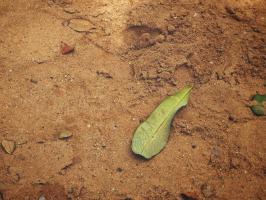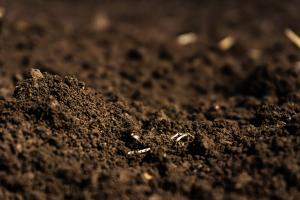Introduction
Soil pH is a crucial factor in determining a plant's health and growth. Alkaline soil, also known as high pH soil, has a pH level above 7.0. Although most plants prefer slightly acidic soil, alkaline soil can be beneficial for certain types of plants. In this article, we will explore the advantages and disadvantages of alkaline soil for plants.
Advantages of Alkaline Soil
Alkaline soil has many advantages for plants that have adapted to high pH levels. Many plants, such as cacti and succulents, favor alkaline soil because of its ability to retain moisture. Alkaline soil also tends to have more nutrients, such as calcium, magnesium, and potassium. These nutrients are more accessible to plants in alkaline soil because they become soluble at higher pH levels. In addition, alkaline soil can discourage certain soil-borne diseases, such as clubroot and fusarium wilt.
Disadvantages of Alkaline Soil
Unfortunately, most plants do not thrive in alkaline soil. High pH levels can cause nutrient deficiencies, especially for plants that prefer acidic soil. Plants such as blueberries, azaleas, and rhododendrons struggle to absorb iron and other micronutrients in alkaline soil. Alkaline soil can also cause other problems such as stunted growth, yellowing leaves, and chlorosis. Some plants are also more susceptible to pests and diseases in alkaline soil.
How to Identify Alkaline Soil
Before planting, it is important to test your soil's pH level. There are several easy ways to check your soil's pH level, including pH strips, a soil pH meter, or a soil test kit. Alkaline soil typically has a pH level above 7.0. If you suspect that your soil is too alkaline, there are several ways to lower the pH level. Adding organic matter such as compost, oak leaves, or peat moss can help lower pH levels over time. Other methods include adding sulfur, aluminum sulfate, or iron sulfate to the soil to reduce pH levels.
Plants That Thrive in Alkaline Soil
Despite the disadvantages of alkaline soil, many plants have adapted to high pH levels and can thrive in alkaline soil. Some popular plants that prefer alkaline soil include lavender, yarrow, sedum, and many varieties of cacti and succulents. Alkaline soil can also benefit important crops such as wheat, alfalfa, and safflower. These plants have developed mechanisms to cope with high pH levels and can take advantage of the greater availability of nutrients in alkaline soil.
Conclusion
While most plants prefer slightly acidic soil, alkaline soil can be beneficial for certain types of plants that have adapted to higher pH levels. Alkaline soil provides more nutrients and moisture retention, and can also help prevent certain soil-borne diseases. However, alkaline soil can also cause nutrient deficiencies and other problems for many types of plants. Testing your soil's pH level and choosing plants that can tolerate higher pH levels can help you make the most of your garden or crop. By understanding the advantages and disadvantages of alkaline soil, you can make informed decisions about how to cultivate healthy and thriving plants.

 how many times do yo...
how many times do yo... how many planted tre...
how many planted tre... how many pine trees ...
how many pine trees ... how many pecan trees...
how many pecan trees... how many plants comp...
how many plants comp... how many plants can ...
how many plants can ... how many plants and ...
how many plants and ... how many pepper plan...
how many pepper plan...
































